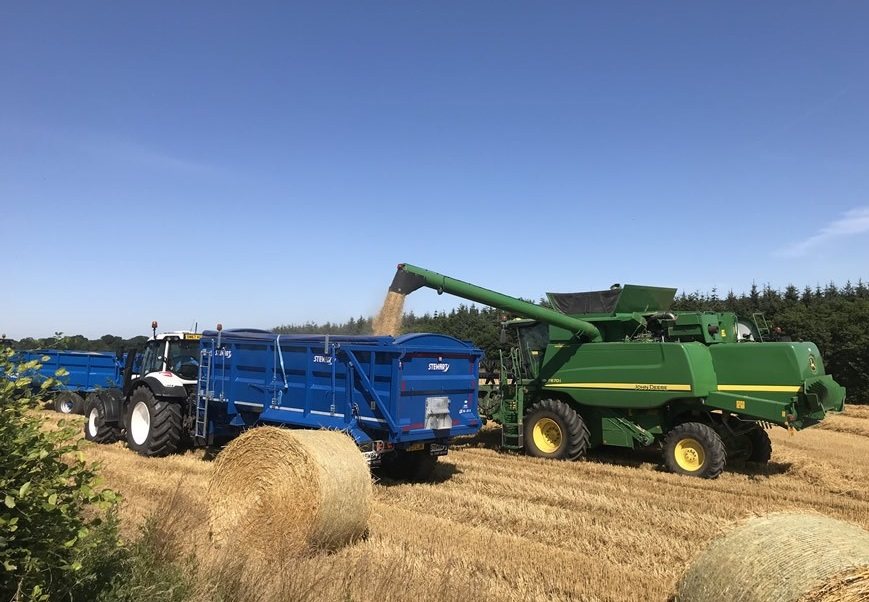
Scottish farmers are facing a challenging summer as a period of extreme dry weather looks set to be followed up by thunderstorms in some parts, NFU Scotland has warned.
Farmers in Ayrshire, Forth and Clyde and Dumfries and Galloway regions have reported instances of grass burning up because of the continued hot and dry weather.
There is also added pressure in ensuring cattle and sheep have access to water, the union said, resulting in additional costs and labour carting water to livestock or moving them around.
Elsewhere, farmers in Orkney and the Highlands have also raised reports of poor growth because of the exceptionally dry conditions.
And in the latest water scarcity report issued by the Scottish Environment Protection Agency (SEPA), the status of Helmsdale and Naver in the Highlands was raised to significant scarcity.
Areas around Wick in the Highlands, and the rivers Cree, Doon, Ayr and Irvine in south-west Scotland were raised to moderate scarcity. The Outer Hebrides was also raised to moderate scarcity to join Orkney.
The areas around the rivers Findhorn, Ythan, Clyde and the isle of Arran were raised to alert with early warning of water scarcity in place across much of the rest of the country.
However, this week’s forecast has brought yellow weather warnings from the Met Office for thunderstorms and heavy rain for Wednesday and Thursday across much of Scotland.
With many areas already cutting winter barley, there are concerns those heavy storms may flatten crops that are close to combining and bring a halt to harvest.
Considering the water availability in many areas, NFU Scotland has issued guidance to farmers on using water efficiently, abstraction and irrigation.
Environmental resources policy manager Sarah Cowie said: “For most areas, rain this week will be very welcome but thunderstorms and the risk of some localised flooding in parts also brings risks.
“With much of Scotland experiencing hot and dry weather over the past couple of weeks, it’s important farmers take steps to ensure the continued supply of water and avoid disruption."
Farmers with high value crops such as potatoes, vegetables and soft fruit are encouraged to irrigate when absolutely necessary, Ms Cowie said.
"When irrigating your land, check equipment isn’t leaking, don’t over spray, and use trickle irrigation where appropriate," she added.
"You could also stagger abstractions with other operators in your catchment area, reduce the volume used, and irrigate at night where possible.
“For those irrigating, consider whether you could switch to using groundwater rather than river water in times of water scarcity.
"If you would need a new borehole to do this, your local SEPA office will be able to help and advice."
Farmers in Scotland can also keep up to date with SEPA’s water scarcity situation report, which is published every Friday morning.
